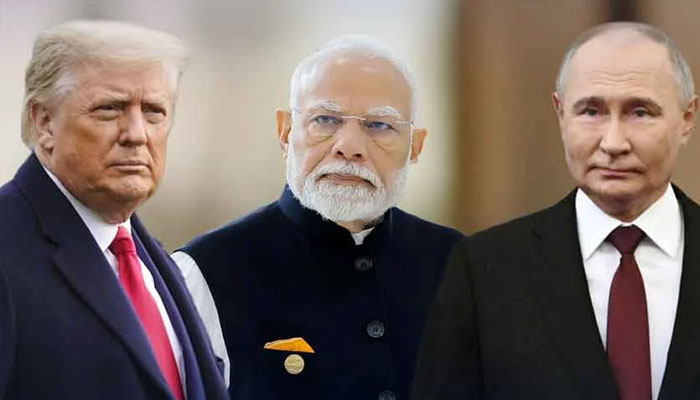US Warns of Increased Secondary Tariffs on India Over Russian Oil Imports
Trump’s new 50% tariff rate on Indian goods, scheduled to take effect on August 27
Washington – US Treasury Secretary Scott Bessent has issued a stark warning that the United States may raise secondary tariffs on India if diplomatic efforts to end the Ukraine war fail. The move hinges on the outcome of President Donald Trump’s upcoming meeting with Russian President Vladimir Putin in Alaska this Friday.
In an interview with Bloomberg TV, Bessent stated,
“We have imposed secondary tariffs on Indians who buy Russian oil. And I could see that if things don’t go well, sanctions or secondary tariffs could be increased.”
This statement follows the Trump administration’s decision earlier this month to impose a 25% penalty on India, along with tariffs on Russian oil and weapons as part of its broader effort to isolate Moscow economically.
Rising Tensions Over Russian Oil
The United States has been pushing for a Russia-Ukraine ceasefire, and President Trump has warned of “severe consequences” if Moscow rejects a peace deal. However, India’s deepening energy ties with Russia have complicated Washington’s diplomatic and economic pressure campaign.
Since the war began, India has significantly ramped up imports of discounted Russian crude, which now accounts for 35% to 40% of its total oil imports, compared to just 3% in 2021. While this has benefited India’s economy by keeping energy prices lower, it has also strained US-India relations and disrupted ongoing trade talks.
Trump Administration Takes Tough Stance
Bessent’s remarks came just a day after he told Fox Business that India had been “a bit recalcitrant” during trade negotiations, which have stalled over India’s refusal to reduce tariffs on agricultural and dairy products.
President Trump has been vocal about what he describes as India’s unfair trade practices, calling the country a “tariff abuser” and vowing to narrow the $45 billion US trade deficit with India.
“President Trump is meeting with President Putin, and the Europeans are waiting in the wings, arguing about how and what he should do. The Europeans must join us in these sanctions,” Bessent said, urging allied nations to enforce secondary sanctions on countries like India that continue purchasing Russian energy.
Impact on Trade and Economy
The ongoing trade talks between New Delhi and Washington are expected to resume on August 25, when US negotiators arrive in India. However, experts warn that new tariffs could derail progress.
Trump’s new 50% tariff rate on Indian goods, scheduled to take effect on August 27, could significantly hurt India’s export industries, particularly textiles and jewellery, and might slow India’s GDP growth by as much as half a percentage point, according to economic analysts.
The new rate would make India the most heavily taxed US trading partner in Asia, marking a potential turning point in US-India economic relations.
India’s Response
India has consistently defended its purchase of Russian oil, citing the need to secure affordable energy for its large population. Officials argue that with millions living below the poverty line, economic stability must remain a top priority.
Despite mounting pressure from Washington, Delhi has not signaled any immediate shift in policy and maintains that its energy strategy is rooted in national interest.
Read more: Trump Extends China Tariff Truce for 90 Days
As Trump and Putin prepare to meet in Anchorage, the outcome could have far-reaching consequences — not just for the Ukraine conflict but also for US-India trade relations, which now hang in the balance.





Comments are closed, but trackbacks and pingbacks are open.